Order of Military Merit, Civil Division, IV Class Cross (with crown)
CATEGORY: Version
SKU: 01.BAV.0107.109.01.001
Estimated market value:
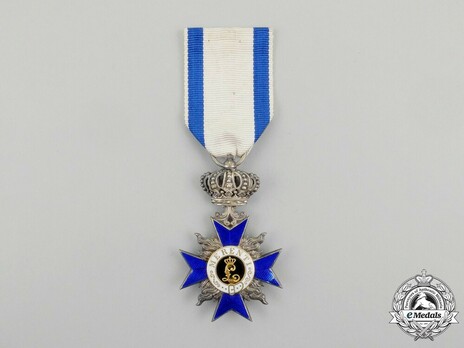
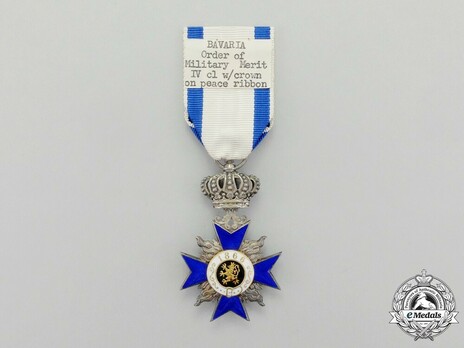
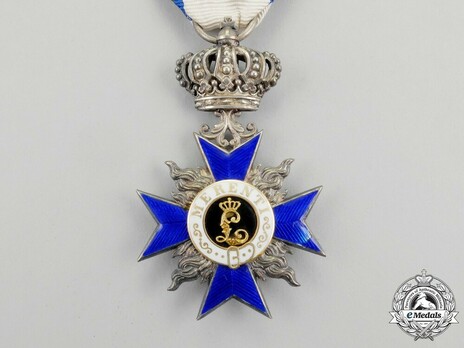
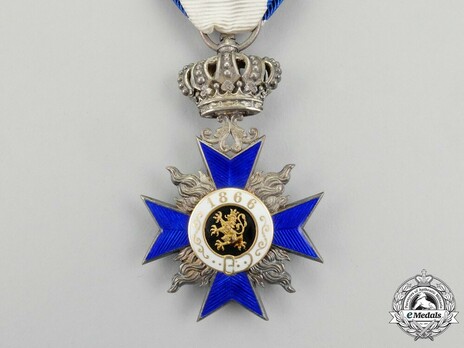
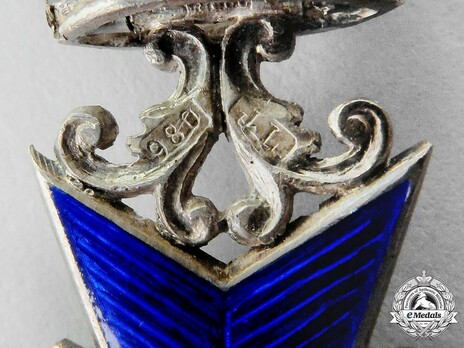
Estimated market value:
A silver Maltese cross with blue, white, and black enamels; the obverse with a central black enameled medallion bearing a gold crowned cipher of King Ludwig III within a white enameled border in the form of a buckled belt, with gold letters reading “Merenti” (Merit); the reverse with a central black enameled medallion bearing a gold crowned Bavarian rampant lion within a white enameled border in the form of a buckled belt, with golden numbers reading “1866”; suspended from a swivel crown suspension - marked “980” for silver content, and “J.L” for Jacob Leser manufacture; with a horizontally-pierced ball and ring suspension; with its period original 35 mm wide peacetime ribbon; measuring 40x65.5mm (h - with crown suspension); weighing 25.4 grams.
The Order of Military Merit was established on July 19, 1866 by King Ludwig II of Bavaria. It was Bavaria’s main decoration for acts of bravery and military merit; however, it was ranked below the Military Order of Max Joseph. Military personnel, civilians acting in support of the military, and members of foreign armies were eligible for the Order of Military Merit. If an individual’s act of bravery or merit was exceptional, they qualified for the Military Order of Max Joseph.
The award was initially awarded in five classes: Grand Cross, Grand Commander, Commander, I Class Knight and II Class Knight, and an affiliated Merit Cross. Award ribbons varied based on division and class.
In 1891, swords were donated to all classes for acts of bravery or merit in war. The order could be conferred with or without swords; awards with swords were generally issued during periods of war or combat.
In 1900, the Officer’s class was added to the order. In 1905, the classes were renamed Grand Cross (and Grand Cross Breast Star), I Class Cross (and I Class Breast Star), II Class Cross (and II Class Breast Star), Officer Cross, III Class Cross, IV Class Cross, I Class Knight’s Cross, II Class Knight’s Cross, I Class Military Merit Cross, II Class Military Merit Cross, and III Class Military Merit Cross.
The Grand Cross and I Class Cross were awarded with a Breast Star; the II Class Cross could be awarded with or without a Breast Star. The III Class Cross and IV Class Cross could be awarded with or without a crown. This distinction was generally based on rank.
There was also a Military Merit Cross, which was awarded to Non-Commissioned Officers and Enlisted Men.
Makers of the order include: Eduard Quellhorst, Munich; Hausinger, Munich; Hemmerle, Munich; Jacob Reader, Straubing; Deschler & Sohn, Munich; L. Christian Lauer, Nuremberg; Weiss & Cie, Munich.

Comments
Sign in to comment and reply.
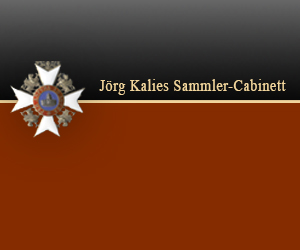
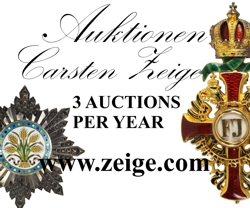
Scroll Top